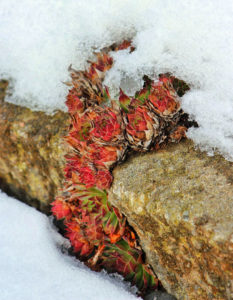 Whatever the climate, mulching is essential for new shrubs and trees. Mulch is a layer of material placed on top of the soil surface to conserve moisture and hold down weeds. It shelters plants during the winter by reducing the hazards of freezing and thawing. The abrupt warm interlude followed by the usual cold temperature damages plant roots that leads to plant damage. Mulch improves soil structure as it decomposes.
Whatever the climate, mulching is essential for new shrubs and trees. Mulch is a layer of material placed on top of the soil surface to conserve moisture and hold down weeds. It shelters plants during the winter by reducing the hazards of freezing and thawing. The abrupt warm interlude followed by the usual cold temperature damages plant roots that leads to plant damage. Mulch improves soil structure as it decomposes.
Here are some tips for people who are not yet too familiar with the use of mulch that protects plants until they become dormant:
Winter mulching is just that – it’s to protect your plants from winter. It is not meant to remain in place year-round. During summer, mulch has a totally different purpose compared to winter. It helps preserve moisture if the weather is dry and water is limited.
Transplanted bushes and trees, perennials, and bulbs all grow roots. These plants require protection from cold and frosty weather.
Remember to mulch your sensitive plants before night-time temperatures fall below freezing. Mulch provides insulation from quick freezing and heaving which can produce bulbs with shallow roots tugging from the ground. These conditions also destroy fragile or weak grafts.
Mulching helps in the moderation of frigid climates. Ice forming at night can damage active plant life. The injured tissues cause the entry of unsafe fungus and bacteria. For temperatures lower than 20 degrees Fahrenheit, mulching is your best bet for protecting tender plants.
Ideal Mulches For Winter
Organic materials are appropriate winter mulch. These include barks, wood chips, straw, hay, sliced corn cobs, and pine needles. Experts recommend abrasive or textured stuff that offers insulation and still permit enough air and water to seep through. These organic mulches insulate the soil under the cover of snow. Deciduous trees are also defenseless during winter’s short thaws due to lack of cover. The increasing temperature is capable of breaking the sequence of dormancy and trigger new and tender growth. Exposed shrubs will wilt and die after the coldness returns.
Compost and frayed leaves also ensure good cover for perennials as well as bulbs. They are also food for microbes, earthworms, and other useful creatures that thrive in the soil. Woody fragments which include nut husks, wood chips and chips of tree barks are foods for fungi and other microorganisms. These help improve soil structure while transporting vital nutrients to plants ahead of summer and gardening season.
Best Time for Applying Mulch
Avoid risks by applying mulch before the first killing frost that destroys plants. This hard freeze is the temperature that falls below 28 degrees Fahrenheit. The probability of damage or plant death rises as the temperature goes down. Consider other factors such as the type of flowers or vegetation, exposed tissues, presence or scarcity of clouds, amount of humidity, and duration of freezing.
Make sure to buy mulch from trusted suppliers, so you know you are getting genuine and affordable products for your landscaping and gardening needs. The Melvin Mulch Company is among the best resources for natural landscaping and beautification of your yard. We also provide valuable pointers about mulching, gardening and the benefits of using different mulching materials for the soil’s surface. If you want to buy good winter mulch, just call Melvin at 414-856-9077.